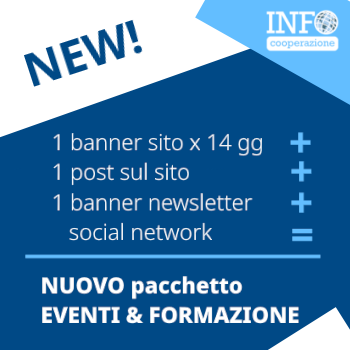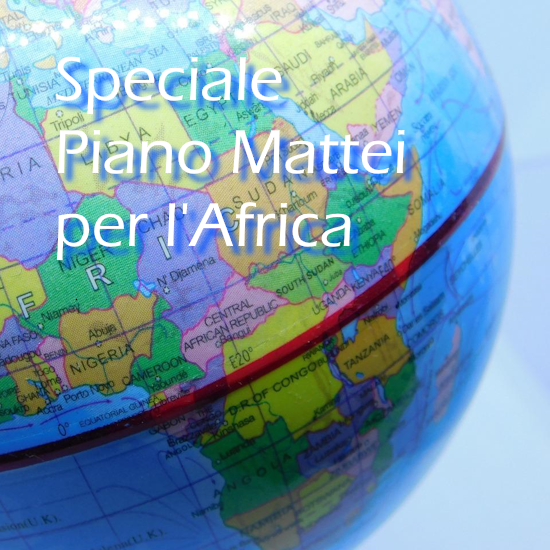 La ONG CCM ricerca un/a Anthropological Researcher da inserire nella sua operatività in Etiopia. Candidature da inviare entro il 15 dicembre 2017
La ONG CCM ricerca un/a Anthropological Researcher da inserire nella sua operatività in Etiopia. Candidature da inviare entro il 15 dicembre 2017
Anthropological Researcher
Description: Consultancy Service for the realisation of an anthropological research in the frame of the project Emergency intervention to support drought affected population of Filtu and Dekasuftu in Liben Zone (Somali Region of Ethiopia)
Area: Somali Region of Ethiopia
Contract Title: Consultancy Service for an anthropological research on the local communities’ perceptions on diseases and environmental risks in Filtu and Dekasuftu Woreda
Deadline of application: 15th december, 2017
Background information
CCM, Comitato Collaborazione Medica, is a non-for profit nongovernmental organisation founded in 1968 in Turin, by a group of medical doctors from Piedmont Region in Italy.
Our key mission is to promote the right to health and ensure access to essential health care.
We are a lay and independent organisation, guided by the values of solidarity, equity, non-discrimination and cultural respect
We works through long term development projects, believing that health can be really promoted only with stable and durable interventions
In case of natural disasters or epidemics in the areas where we work, we implements emergency interventions
In regards to Ethiopia, CCM is registered in the country since 1998. CCM projects in Ethiopia aims at contributing to the promotion of a good health and quality of life for the poor and vulnerable people in the most remote areas of the country.
CCM, in consortium with the NGO CISP, is currently implementing the project “Emergency intervention to support drought affected population of Filtu and Dekasuftu in Liben Zone” started the 3 April 2017 and planned to be concluded the 2 April 2018.
In the frame of this and other projects in the area, CCM is applying the One Health (OH) approach with the aim of reducing health risks and improving the health status of local communities through the development of cross-sectorial and cross-level interventions. OH focuses on the interrelation of human, animal and environmental health and promotes a trans-disciplinary approach that combines the perceptions and knowledge of local communities with scientific methods and expertise. Ethiopia has recognized the potential benefits of One Health and with support of various donors, including USAID and FAO is exploring ways to promote OH thinking through a national One Health platform. In October 2017 workshop, various stakeholders discussed a national One Health strategy 2018-2022 which is currently under review and expected to be launched in 2018.
Capitalizing on the long-standing experience working with pastoralists in the target areas, CCM desires to deepen the analysis initiated through past projects in the identification of effective strategies to address the still huge and not yet met human, animal and environment health needs of pastoralist communities.
Supported by the Swiss Development Cooperation (SDC), CCM conducted a study in 2015/2016 to assess the feasibility, efficacy and efficiency of the One Health (OH) approach
in Filtu woreda in the Liben Zone of Somali Regional State. The main purpose of the operational research was to assess local pastoralists’ needs, perceptions and behaviors towards human and animal health, in relation to the local socio-ecological context. Special attention was given to the strategies of adaptation to the environment – also in relation to climate change – and to the hindrances that prevent people to access the existing human and animal health facilities.
The study confirmed that besides subsistence, Filtu environmental context is the natural feedback system for pastoralists seeking health for themselves and their livestock. This relationship is not peaceful, since it elicits defensive responses by the environment. This means that a “healthy environment” is not necessarily providing health to pastoral communities: a repulsive disease could be the unwelcome answer.
Pastoralists need grass and leaves, both derived from rains. Most of the field narratives involve a strategy based on ‘We follow the rains, wherever they fall’. In Filtu woreda, rainfall is erratic in time and space, that is why mobility is an imperative for nomads. Moreover, pastoralists developed a “vegetal geography”; plants and features provide the herder a mental map to follow with patterns of land use: goats and camels must be driven to bushy areas since they are browsers; sheep and cows need grass, being grazers; both groups have to be taken to salt licks, a combination of minerals and water.
The construction of big water points partially modified the paths of pastoralists, that today gather around these resources. Side effects of the process are the overcrowding of adjacent grazing areas, the development and spread of water-borne diseases, the inadequacy and frequent malfunctioning of the supply. Beside grazing and water, one of the main factors driving pastoralists’ movements is the need to avoid risks as pest infestations and presence of livestock/human diseases in some area.
Pastoralists are well integrated in the ecosystem, even if climate change is progressively reducing available pasture, pushing them towards agro-pastoralism and sedentarization. Major perceived risks are droughts and floods; moreover, rapid climate changes affect the seasonal and geographic disease distribution, challenging traditional prevention methods and behaviors. When climate change combines with conflicts, farming land expansion, and unavailability of proper services, the multi-dimensionality of disasters pose actual threats to pastoralists’ survival.
Scope of the service
The service required is meant at producing an anthropological research in the frame of the project Emergency intervention to support drought affected population of Filtu and Dekasuftu in Liben Zone, with the objectives of:
Promoting a deeper understanding of knowledge and perceptions of local pastoral communities about diseases, and in particular zoonosis, and environmental risks;
Exploring the preventive and coping mechanisms existing among local communities to address the risks (mainly in relation to diseases transmission; pest infestations; floods and droughts);
Documenting existing best practices to be capitalised and exchanged to enhance pastoralists’ resilience.
Expected Outputs
By the end of the work, the consultant is expected to produce the following documents. Please note that all documents must be provided in hard and soft copy in English language.
Short report on the study methods applied, including study approach, data gathering tools, sampling technique, size and location visited and organization of field work;
Final consistent high-quality research report;
Recommendations for future actions to foster the One Health approach within the area of intervention.
Users of the evaluation report
Main users of the evaluation will be:
CCM and its local counterparts and partners
Concerned stakeholders
Italian Agency for Development Cooperation – AICS
Timeframe:
The evaluation shall be conducted and finalized before the 31st of January 2018 and the report must be submitted before 1st February 2018.
The consultant has to plan to visit the project’s areas between the 9th and 31st of January, for a minimum of 20 full days to be able to fulfil the set objectives.
Proposal submission
In response to these terms of reference, potential consultants are requested to submit a detailed technical and financial proposal outlining how they propose to address the research objectives to the commissioning manager at CCM. The proposal should include the following:
Detailed research methodology and approach;
Report outline and suggested content (i.e. key section and areas under that sections that should be addressed by this research);
The total budget needed to undertake the work. Please, note that the total amount on a budget for the consultant service is 4.000 € including VAT.
On top of the 4.000€ for the consultant service, CCM will provide:
the transfer from Addis Abeba to Liben Zone by project vehicle
the transport in Liben Zone by project vehicle
accommodation in Addis Abeba and Filtu compounds
flight, insurance and visa
CVs of researcher, detailing qualifications and experience appropriate to set objectives;
Portfolio of previous evaluations, preferable similar to the presented project.
Required Qualifications/Expertise
The individual or team should have the following specific experiences and qualification:
Depth understanding of socio-anthropological environment and components in developing countries, with a focus on pastoral communities
Experience in conducting socio-anthropological research in the frame of development and humanitarian projects
Working experience in Ethiopia and specifically Somali Region and in other comparable settings;
Excellent reporting and communication skills;
Capability to liaise among different relevant stakeholders at national and local level;
English mandatory (written and oral). Italian and Somali is an asset;
Academic and/or sectoral magazines publications is an asset.
Evaluation criteria
The consultant proposal will be evaluated based on the following criteria:
Technical proposal (max 60 points):
Adequacy and technical quality of the proposal for meeting TOR proposed scope and focus:
10 points for meeting proposal requires
10 points for Academic Degree
Qualifications in anthropology (max 6 points)
Magazines/Academic publications (max 5 points)
Magazines/Academic publications on the topic documenting existing best practices to enhance pastoralists’ resilience. (max 8 points)
Background and experience of the consultant firm and/or individuals:
10 points for each year experienced in Ethiopian pastoral communities, and/or comparable settings
8 points for each year spent working on socio-anthropologic research regarding the knowledge and perceptions of local pastoral communities about diseases, and in particular zoonosis, and environmental risks in Ethiopia and or comparable settings;
6 points for each year spent working on exploring mechanisms to address the risks in relation to diseases transmission; pest infestations; floods and droughts in Ethiopia and or comparable settings;
Financial proposal (max 40 points):
20 points for meeting financial requirement to carry out the consultancy
20 points for more convenient financial proposal (breaking down the cost of it)
Terms of payment
The consultants will receive remuneration under the following terms of payment, which will be based on the output of the work and not on the duration that it might take.
50 % of the total shall be paid upon signing of the contractual agreement
50% of total payment shall be paid upon approval of the final report by CCM
Management structure:
The Contracting Authority shall be represented by CCM project coordinator, also responsible for the provision of general technical support.
Information:
Interested candidates should submit the all documents of point 7 to Mrs. Federica Morra, CCM HR Officer, e-mail: federica.morra@ccm-italia.org no later than 15th December at 1 pm (CET time zone).











